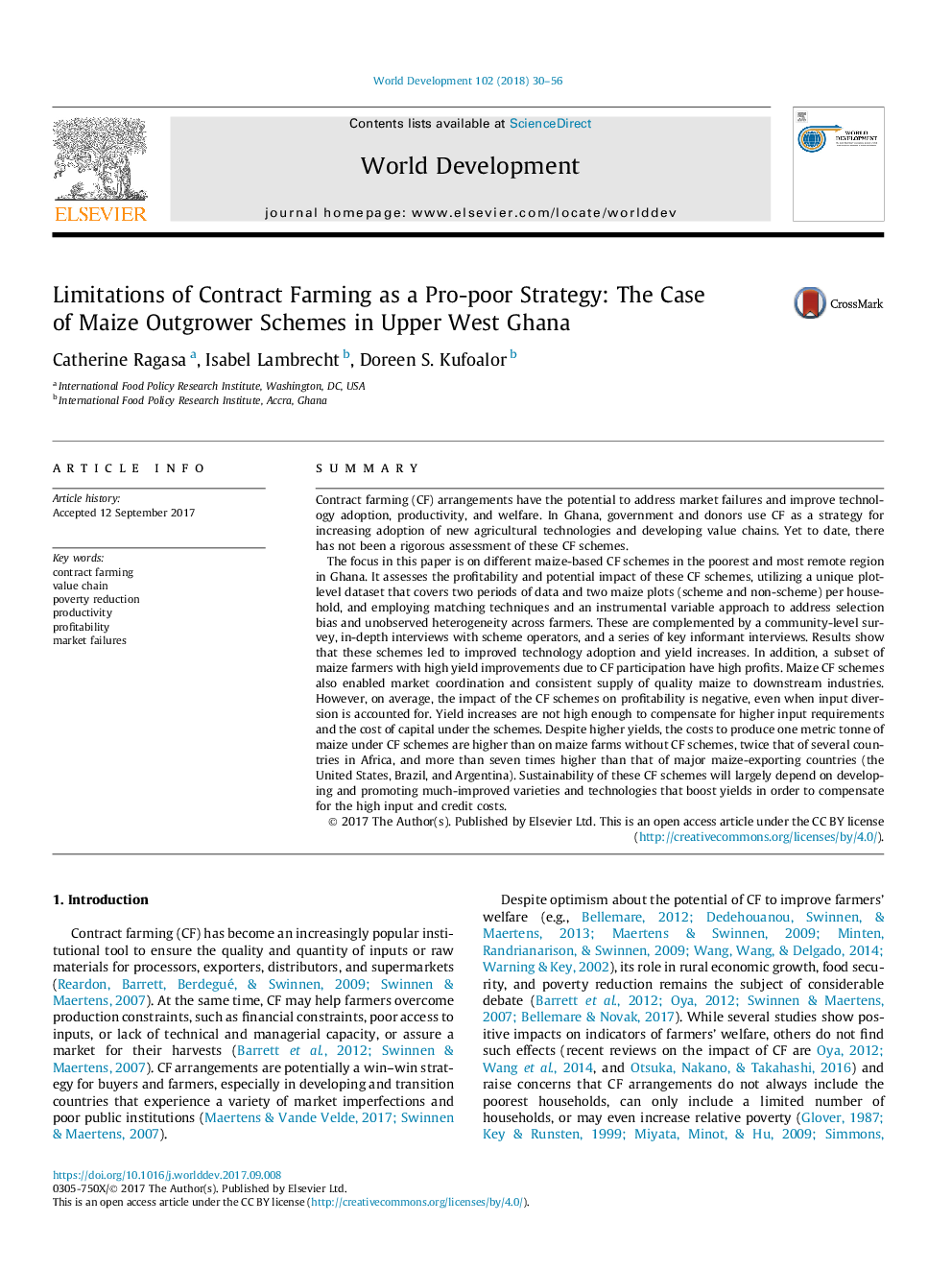ترجمه فارسی عنوان مقاله
محدودیت های قرارداد کشاورزی به عنوان یک استراتژی فقیر فقیر: مورد طرح های مزرعه ذرت در غرب غنا
عنوان انگلیسی
Limitations of Contract Farming as a Pro-poor Strategy: The Case of Maize Outgrower Schemes in Upper West Ghana
| کد مقاله | سال انتشار | تعداد صفحات مقاله انگلیسی |
|---|---|---|
| 135323 | 2018 | 27 صفحه PDF |
منبع

Publisher : Elsevier - Science Direct (الزویر - ساینس دایرکت)
Journal : World Development, Volume 102, February 2018, Pages 30-56
ترجمه کلمات کلیدی
کشاورزی قرارداد زنجیره ارزش، کاهش فقر، بهره وری، سودآوری، شکست بازار
کلمات کلیدی انگلیسی
contract farming; value chain; poverty reduction; productivity; profitability; market failures;

